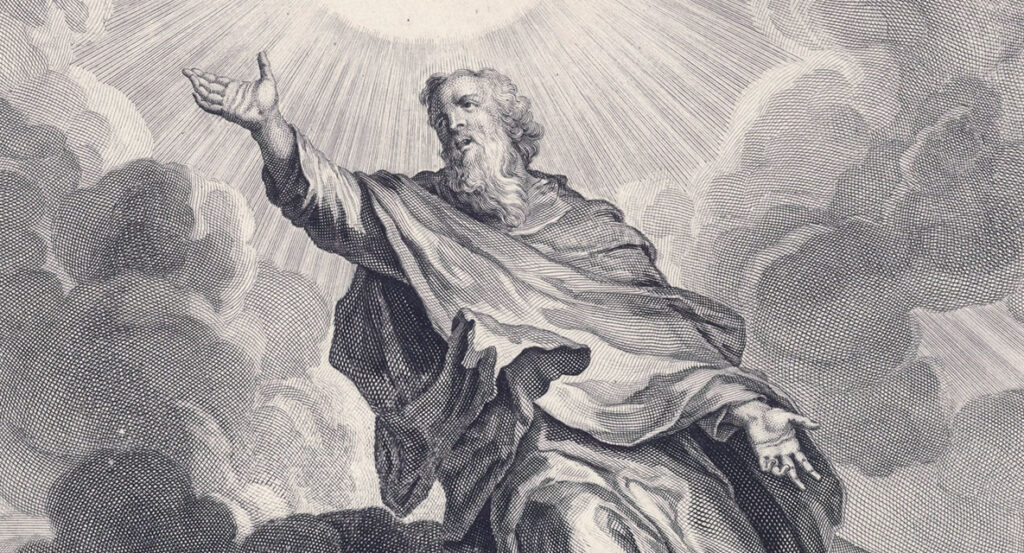When Enoch had lived 65 years, he fathered Methuselah. 22 Enoch walked with God[a] after he fathered Methuselah 300 years and had other sons and daughters. 23 Thus all the days of Enoch were 365 years. 24 Enoch walked with God, and he was not, for God took him.
Genesis 5:21-24

While the book of Genesis is referred to as a “Book of Beginnings”, it can also be called a “Book of Generations.” In effect, the Book of Genesis is the family history of the Israel. Several times we find a list of genealogies, that are summaries of the family line traced all the way back to the first man – Adam. The book as a whole contains 10 sections called toledots (from the Hebrew תּוֹלְדֹת, which is translated as “generations”.) Each section begins with “This is the book of the generation of….” The first is in Genesis 2:4 where following the epilogue of Creation, Moses gives us the details of the creation and fall of Adam and Eve and ending with the murder of Abel, exile of Cain, and the birth of Seth.
The second toledot begins “This is the book of the generations of Adam.” Chapter 5 traces the descendants of Adam for 2165 years, up to Noah at age 500 and the birth of his three sons, Shem, Ham, and Japheth. Moses reiterates again that “God created man, and made him in the likeness of God. Male and female He created them, and He blessed them and named them Man when they were created.” This is the third time, early in the book, that Moses emphasizes God’s creative hand and intention in creating mankind, including Israel and all other nations of the world. And for the rest of the chapter, Moses gives a litany of a man who was born, had sons and daughters, and he died at a very old age (recorded average lifespan 857.5 years) until Noah. However we do get some hints of what the word of God is trying to describe of the line of Seth in the names of Seth’s descendants.
- Adam = “Man”
- Seth = “Compensation”
- Enosh = “Mankind”
- Kenan = “Posession”
- Mahalael = “The Praise of God”
- Jared = “Descends” or “Comes Down”
- Enoch = “Dedicated”
- Methusaleh = “Man of the Dart”
- Lamech = “Powerful”
- Noah = “Rest”
We know very little about any of their life details, except that we have a brief interjection as we reach Enoch. Enoch was 65 years old when his first son was born, Methuselah (translation “man of the dart”). Twice Moses makes the observation that “Enoch walked with God.” (Genesis 5:23a,24a) At the relatively young age of 365 years old, after fathering sons and daughters, and continuing to walk with God, “he was no more, for God took him.”
Two things that I would point out here about Enoch from what Moses records:
- He was obedient to the Creation Mandate. He was fruitful. He multiplied. He subdued the earth. And he taught his son by his name to also subdue the earth. The “dart” is a weapon akin to a javelin so Enoch taught his son to be a warrior.
- He walked with God. Here is a picture of an intimate relationship with the Holy Creator that wasn’t limited to just a periodic ritual. Figuratively, he walked with Him as a friend walks and talks with a friend. There is a closeness that echoed the favor of God. And as a result, God took him. In a sense, God taking His friend Enoch out of the world was an act of mercy and grace because only 3 generations later, the flood comes.
Given the age of Methusaleh at 969, it aligns with the year in which Noah’s flood occurs, making Methusaleh not only the oldest man to ever live, but also the oldest to die in the flood. We also begin to see the ages of the remaining line of Adam up through Noah begin to lower – all except for Noah aligning with the flood as well. Adam lived long enough to possibly have known the birth of his descendant Methusaleh, but not the birth of Noah – again, an act of mercy on behalf of the father to grant Adam his sleep in death before the looming destruction of the world by flood.
Typically, we tend to skip over the genealogies of the Bible, but quite often if we stop and look deeper into what is recorded, we can mine out some precious gems of God’s goodness buried within the text. In His sovereignty, God is merciful to whom He chooses to show mercy. Even if we don’t see the future of what God is planning, sometimes what God is doing is sparing us the pain of an even darker fate that awaits.
More importantly, the lesson of this list of generations is quite simple: what kind of legacy do you want to leave behind? Do you simply want to be remembered as a man who lived, had kids, and died? Or do you want to leave behind a legacy of obedience to the sovereign call of God, raising and training a family in that same obedience, and an intimate daily walk with the Father?